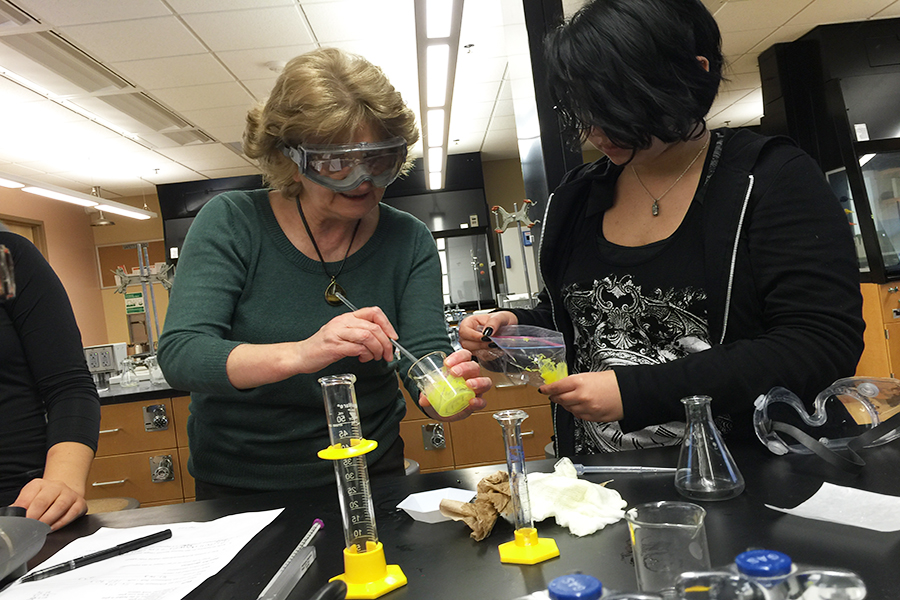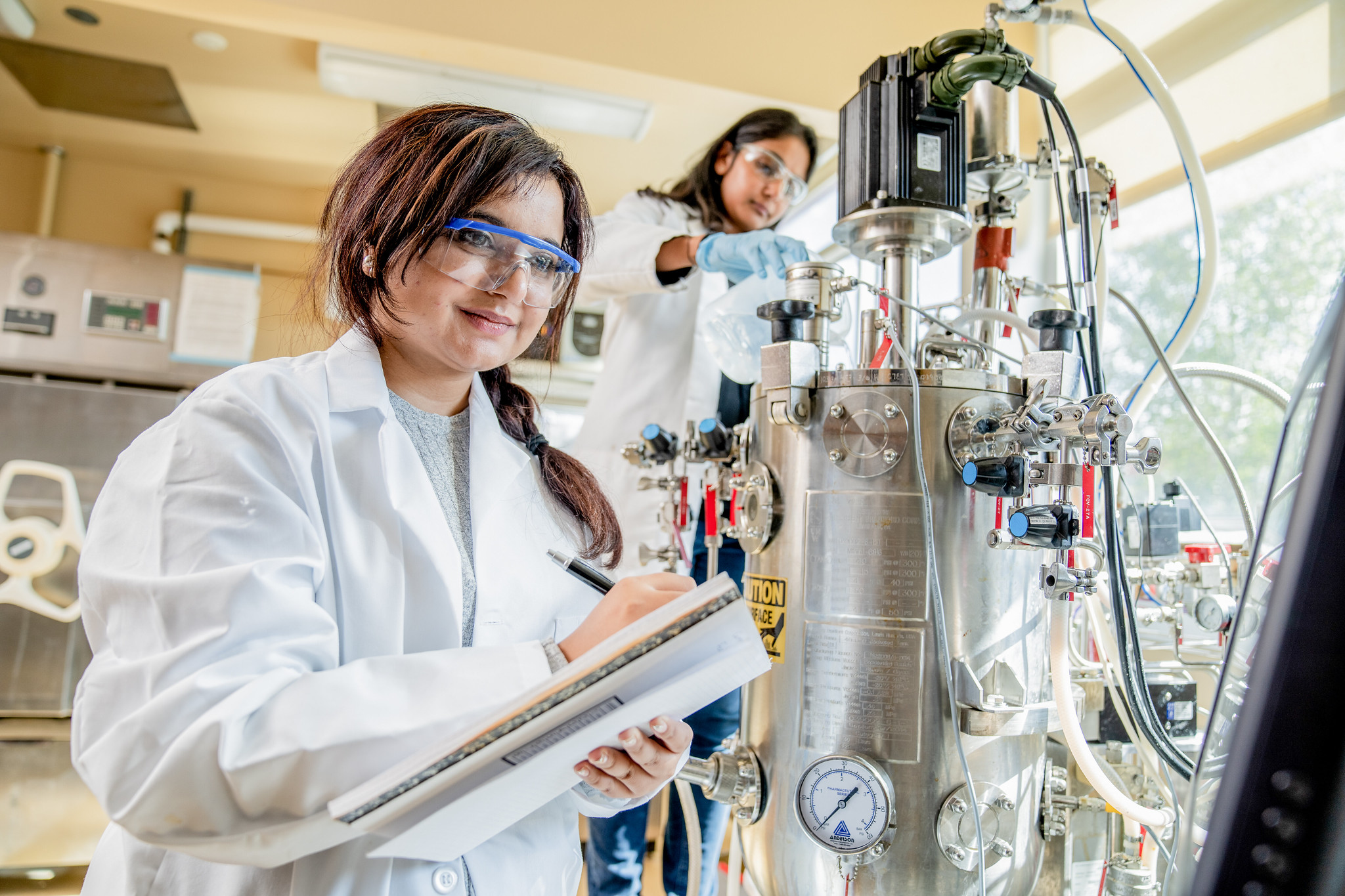How to Gain Experience in Pre-Professional Health Sciences

Gaining relevant experience in pre-professional health sciences is crucial for students aiming to pursue careers in healthcare. At South Dakota Mines, preparing students for advanced roles in the medical field involves more than just classroom learning. It requires practical experience, which can be achieved through strategic involvement in various activities.
Leveraging university resources is a great start. At South Dakota Mines, academic advisors and faculty guide students through carefully structured pre-professional programs. These programs help students meet the admission requirements for medical and professional schools. Additionally, engaging in research opportunities on campus can provide hands-on experience that textbooks simply can't offer.
Beyond campus, volunteering and internships play a vital role in building practical skills. Local hospitals and clinics offer students a chance to work in real healthcare settings, where they can observe and participate in patient care. Whether through internships or volunteering, these experiences are invaluable in developing a deeper understanding of the healthcare environment.
Leveraging University Resources
Making the most out of university resources can significantly impact your journey into pre-professional health sciences. At South Dakota Mines, academic advisors play a crucial role in guiding students. These skilled professionals help you select the right courses that meet medical school prerequisites and inform you about opportunities for real-world experience. Regular meetings with advisors ensure that you stay on track with your goals and address any academic challenges that arise.
Taking advantage of pre-professional health sciences programs is another excellent way to prepare for a healthcare career. These programs offer structured pathways that integrate relevant coursework with practical experience. By enrolling in these tailored programs, you gain foundational knowledge critical for professional schools. Additionally, universities often offer specialized courses in fields like biology, chemistry, and biomedical engineering, all of which build a solid foundation for your future healthcare career.
Research opportunities on campus further enhance your academic experience. Participating in research projects allows you to apply theoretical knowledge to practical situations, developing essential problem-solving skills. Many universities offer students access to state-of-the-art labs and experienced faculty mentors. Engaging in research not only enriches your resume but also gives you insights into the latest advancements in healthcare, preparing you for future challenges in the field.
Practical Experience Through Volunteering and Internships
Gaining practical experience through volunteering and internships is vital for students interested in health sciences. It offers a direct window into the working world of healthcare, providing invaluable insights and skills. To start, identify local volunteering opportunities in healthcare settings. Many organizations, such as hospitals, clinics, and community health centers, welcome student volunteers. By engaging with these organizations, you'll learn about patient care, healthcare operations, and the importance of teamwork.
Securing internships in medical facilities is another significant step. Begin by researching hospitals and clinics that offer internship programs. Reach out to their HR departments to discuss available opportunities and application processes. Internship experiences can range from administrative roles to assisting with patient care, providing an environment where you can apply classroom knowledge in real-world settings. To enhance your chances, it helps to draft a compelling resume and cover letter that highlight your passion for healthcare and relevant skills.
Shadowing professionals in medical fields is also beneficial. Observing doctors, nurses, and other health practitioners allows you to witness the nuances of patient care. This experience helps you understand different specialties and can guide your career decisions. Moreover, shadowing helps build professional connections that may lead to mentorship opportunities, further supporting your career aspirations. Whether through volunteering, internships, or shadowing, these experiences bring you closer to becoming a well-rounded healthcare professional.
Participate in Relevant Clubs and Organizations
Getting involved in clubs and organizations dedicated to healthcare can significantly enrich your academic experience. Many universities have student groups focused on different aspects of the health sciences. These clubs provide a platform to learn more about the field, engage in service activities, and gain leadership experience.
Networking through professional organizations is another key advantage. By becoming a part of healthcare networks, you connect with professionals and peers who share your interests. These connections can lead to mentorship opportunities and might open doors for future internships or jobs. Attending conferences and meetings organized by these bodies further enhances your understanding of the healthcare industry.
Workshops and seminars offered by these clubs are valuable for skill development. They frequently host events that cover a wide range of topics, from CPR certification to technical skills like medical writing or data analysis in health research. These events allow you to learn from experts, ask questions, and get hands-on experience. Participating actively in these groups helps strengthen your resume and prepares you for the challenges of a healthcare career.
Enhance Learning Through Online Platforms
Online platforms are a powerful tool for supplementing your education in health sciences. Virtual simulation tools, for instance, can offer practical skills training. These tools simulate real-life medical scenarios, allowing you to practice procedures safely and effectively. They enhance your ability to respond to various medical situations, providing a realistic educational experience without leaving home.
Enrolling in online courses relevant to your field can also broaden your knowledge. There are numerous courses available that cover topics from basic biology to advanced biomedical engineering. These courses can fit around your existing commitments and provide you with new insights that complement your university studies. Many platforms offer courses developed by prestigious institutions, ensuring a high-quality learning experience.
Engaging with online forums and communities is equally beneficial. These platforms connect you with like-minded peers from around the world. You can share experiences, discuss challenges, and collaborate on projects. It's a great way to get diverse perspectives on your studies and stay updated on the latest trends in the health sciences. This collaborative learning approach helps deepen your understanding and keep your skills sharp.
Conclusion
Gaining relevant experience in pre-professional health sciences involves a strategic combination of academic resources, practical engagement, and continuous learning. By leveraging the support of academic advisors and participating in structured pre-professional programs, students at institutions can align their coursework with career goals. Practical experiences through volunteering, internships, and shadowing offer insights into real-world healthcare environments, fostering essential skills and understanding.
At South Dakota Mines, you will find a supportive community that empowers students to grow academically and professionally. Step into a world of opportunities that await you in the health sciences. Explore the vibrant campus life, cutting-edge health science courses, and resources that prepare you for a future in healthcare. Join us and start building your pathway to success today!
Activities and Organizations
A seminar series is in development; individuals from other departments or interested parties from the general public are welcome to attend.
We encourage the students in our department to be active in the American Chemical Society (ACS) student chapter, Student Biological Professional Society, Future Health Science Professionals, as well as join other campus organizations and activities.

The American Chemical Society (ACS)
The American Chemical Society is a self-governed individual membership organization
that consists of more than 163,000 members at all degree levels and in all fields
of chemistry.
The organization provides a broad range of opportunities for peer interaction, career
development, community service, and leadership skills regardless of professional or
scientific interest.
The purpose of ACS is to meet the needs of its members, foster scientific advancement,
and promote the public understanding of chemistry.
There are many benefits, technical and nontechnical, to joining ACS. These include
reduced fees to national and regional meetings, access to ACS journals and chemical
abstracts, continuing education opportunities, insurance programs, travel programs,
auto rental discounts, and much more.
The South Dakota Mines Student Affiliates Chapter at South Dakota Mines is actively
involved in many activities such as National Chemistry Week, chemistry magic shows,
and other social events.
Beta Phi Chapter of Alpha Chi Sigma
South Dakota Mines is home to the Beta Phi Chapter of Alpha Chi Sigma, the national's
oldest professional chemical fraternity. Membership is open to students from a variety
of academic disciplines, including metallurgical engineering, geology, geological
engineering, chemistry, chemical engineering, mining engineering and management, environmental
engineering, pre-health, and atmospheric sciences. Find out more at the Beta Phi Chapter website.
Research Labs & Centers
Catalog Links
2024-2025 Academic Catalog- Biology, BS
- Biology: Environmental Biological Sciences Specialization, BS
- Biology: Molecular Biology Specialization, BS
- Chemistry, BS
- Chemistry: Biochemistry Specialization, BS
- Chemistry: Green Chemistry Specialization, BS
- Chemical and Biological Sciences, MS
- Chemical and Biological Sciences, PhD
- Biology Minor
- Chemistry Minor
- Environmental Science Minor
Contact Us
| Department of Chemistry, Biology, and Health Sciences |
For general information: |
For information about the undergraduate programs: |
For information about graduate programs: |
|
South Dakota School of Mines and Technology |
Amber Seidel Zhengtao Zhu
|
Chemistry: Biology / Pre-Professional Health Sciences: |
Chemical and Biological Sciences MS/PhD: Rajesh K. Sani |

